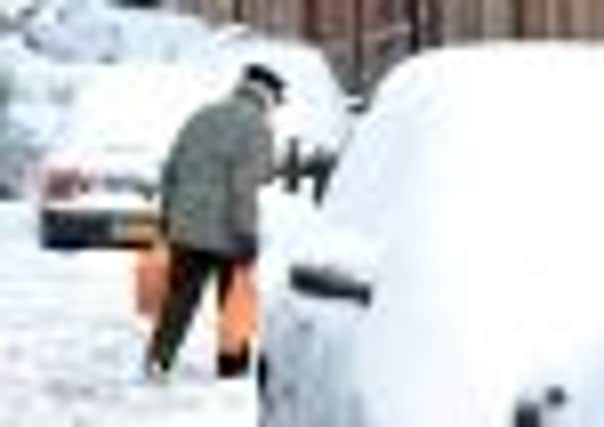Winter deaths at 20-year low despite deep-freeze weather temperatures


According to figures released yesterday by the Registrar-general, there were 19,626 deaths in Scotland in the four months of winter 2010-11 (December to March). This was 61 fewer than the 19,687 deaths recorded in the previous winter.
And the seasonal difference – calculated by comparing the four months prior to and the four months after the winter period – was 2,450, compared witho 2,760 the previous year.
Advertisement
Hide AdAdvertisement
Hide AdThe Registrar-general for Scotland, George MacKenzie, commenting on the report, Winter Mortality in Scotland – 2010-11, said: “Last winter, the seasonal increase in the number of deaths was less than in the previous winter. Despite the unusually cold weather, winter 2010 to 2011 had the ninth-lowest seasonal increase of all the 60 winters for which we have calculated these figures.
“The long-term trend has clearly been downward,” he added. “We began recording winter deaths in 1951, and the last ten years have seen some of the lowest figures.
“However, in recent years there has been relatively little change in the average number of deaths.”
Mr MacKenzie said there was no single cause of additional deaths in winter.
“Very few are caused by hypothermia and only a small proportion by influenza,” he said. “Most are from respiratory and circulatory diseases, such as pneumonia, coronary heart disease and stroke.”
Lindsay Scott, spokesman for Age Scotland, said the issue of “when” deaths occurred masked the fact that many underlying factors could lead to loss of life throughout the year.
He said: “If someone is malnourished, their chances of becoming a casualty increase, but this may take a number of months. The deaths can be due to a combination of factors, so if the so-called excess ‘winter’ death rates go down, it just means that for that year not so many people have died over the winter, but may do so in the spring, summer or autumn.”
Norman Kerr, director of Energy Action Scotland, a national charity campaigning to end fuel poverty, said the inablity of many vulnerable Scots to heat their homes was a growing problem.
Advertisement
Hide AdAdvertisement
Hide Ad“It’s great that excess winter deaths are on the decline,” he said. “A lot of it is to down to a healthier lifestyle by people who are cutting down on smoking, watching their diet and taking more exercise. But the underlying problem of fuel poverty is on the increase.
“Those who can’t afford to heat their homes often ration the fuel they use, meaning they live in cold, damp houses, which adversely affect their health.
“This can result in heart attacks and strokes and other bronchial illnesses, which can lead to winter deaths. People talk about hypothermic deaths, but these are relatively low, and usually involve tragic cases, such as a climber caught in the hills.”
Health secretary Nicola Sturgeon, said: “We all remember the severity of the weather last winter – the worst for several decades. It is, therefore, very encouraging that, despite the unusually cold weather, the seasonal increase in the number of deaths has reduced by 13 per cent.”
She went on: “Last year, more Scots than ever before were vaccinated against the flu, and I strongly encourage everyone who is entitled to vaccination to make sure they get this year’s winter flu jag.
“All additional deaths are regrettable and a great deal of work is happening to ensure that Scotland is prepared for the forthcoming winter.”